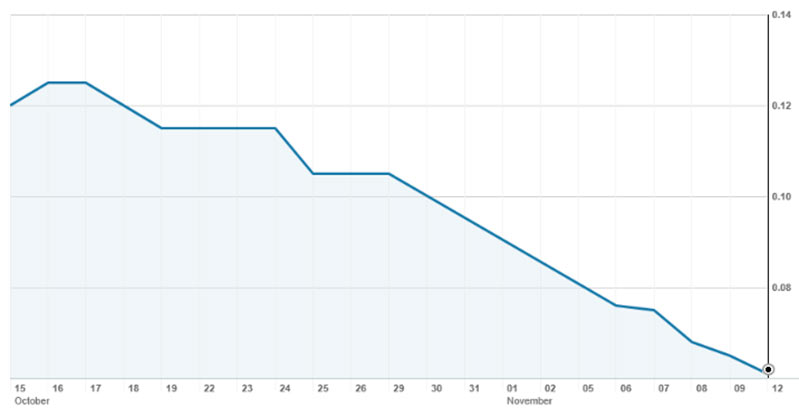Celsius plans to update its cobalt scoping study after shareholder backlash

“Significant shareholder inquiries” and a falling share price has prompted cobalt explorer Celsius Resources to update an ambiguous scoping study for a project in Namibia.
Celsius last week published a study on a big, long-life Namibian project called “Opuwo” — but it was prevented by ASX rules from reporting production targets or financial metrics such as projected costs, revenue and so on.
That rattled shareholders who promptly sold Celsius (ASX:CLA) shares down 40 per cent last week.
Celsius has now moved to update the scoping study and is aiming to release detailed results — including production targets and financial information derived from those targets — to the market late in the first quarter next year.
That didn’t appease investors, however, who sold down Celsius another 6.5 per cent by midday Tuesday.

New ASX rules are confusing investors
Miners usually undertake four types of studies when examining the potential of a resource. These are scoping, preliminary feasibility (PFS), definitive feasibility (DFS) and bankable feasibility (BFS).
These determine whether or not a resource can be mined economically.
The problem right now is that there is no real standard for explaining what each of these studies actually mean — and that’s what the ASX has tried to introduce, resources expert Gavin Wendt says.
But Mr Wendt argues that the ASX has actually made it too hard for companies to get their message across.
“They’re not helping the investing public. Most of the rules they’ve brought in have just made life harder for companies,” he says.
“In the old days, if a reputable group of directors picked up a project and did some work on it and came out with a scoping study, they could publish forecasts and guidelines which would give the average shareholder in a company a really good understanding of where this project might potentially go.
“Now a company will do a scoping study and they’re not allowed to talk about the results.”
UNLOCK INSIGHTS
Discover the untold stories of emerging ASX stocks.
Daily news and expert analysis, it's free to subscribe.
By proceeding, you confirm you understand that we handle personal information in accordance with our Privacy Policy.








